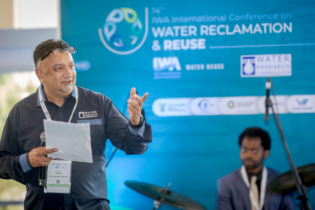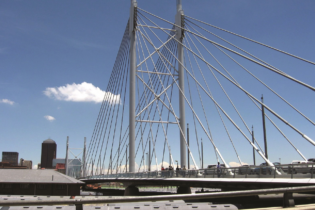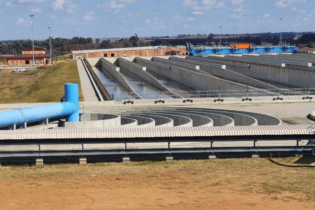The Polystyrene Association of South Africa hosted a virtual Annual General Meeting, making use of an online meeting platform.
This was following the restrictions that were announced by President Cyril Ramaphosa, in the light of the Covid-19 outbreak. The meeting, was to outline the previous years challenges and map ot a way forward. A tough year for the polystyrene industry Outgoing chairman Anton Maingard said 2019 was an extremely challenging year that adversely affected the already battle-hardened businesses in the plastics manufacturing industries. “We had to contend with above-inflation increases in operating costs, wage disputes, electricity increases and extensive electrical load shedding which reduced efficiencies and outputs. Fuel increases and a fluctuating weak currency eroded profit margins and made it very difficult for companies to sustain themselves. Added to this, polystyrene packaging products were also on the receiving end of harsh criticism and calls for it to be banned along with other single-use plastics. “However, despite these obstacles and opposition, the Polystyrene Association of SA continued its work of spreading the message about the need and versatility of polystyrene and its many uses of recycled polystyrene through our many existing and new exciting projects,” Maingard said. Various uses for polystyrene in domestic market Packaging continued to make up the vast majority (approx. 60 %) of the domestic market for polystyrene this past year, although the material was also used in a wide variety of different applications, such as protective packaging for household or high-value goods, in building and construction to produce insulation and lightweight concrete bricks and screeds, and in seedling trays. “Looking back at 2019, we are proud to say that we have seen the results of our efforts to build stronger and wider networks with our producers, collectors, recyclers and waste management companies. In our determination to resolve the issue of bottle-necks developing in the supply chain, the Polystyrene Association found itself playing an ever-increasing role of a facilitator between the collectors and waste management companies on the one side and our network of end-markets on the other. These recyclers have a high demand for both expanded and high impact polystyrene needed for their various projects and rely on a consistent, uninterrupted supply of materials,” reported Adri Spangenberg, CEO of the Association. Developing an EPR plan for the polystyrene industryThe Polystyrene body also continued to work closely with the Department of Environment, Forestry & Fisheries (DEFF) in developing a Section 18 Plan that will adequately demonstrate the industry’s commitment to Extended Producer Responsibility and successfully create a sustainable, circular economy.
Whilst this is still in its development phase, Adri explained that opportunities to influence what the final plan will look like still abound. “What is clear is that the Government is demanding from industry a proactive approach in the way we are managing our materials so that the waste stream is minimized and producer responsibility is demonstrated. They are looking at us as Producer Responsibility Organisations (PRO’s) to represent the inputs and interests of our members as we engage around the table about the setting of targets for recycling, socio-economic upliftment of communities and job creation. If we fail in this, we (and other packaging streams) run the risk of being mandated by an external party,” she warned. Negative impacts of free-riders and cheap imports Touching on the issues of so-called “free riders”, i.e. producers not belonging to a PRO, and polystyrene products being imported into South Africa, Adri said both these practices hurt the industry in more ways than one. Apart from the fact that neither the importers nor the free-riders contribute to the EPR scheme and therefore do not take responsibility for their waste, there is also no guarantee that their food contact packaging being sold in the local market meet the health and safety standards that Polystyrene Association members adhere to Looking ahead The future success and survival of the local polystyrene sector largely depend on the degree to which all the role-players in the value chain are willing to contribute their resources, skills and participation towards building Polystyrene Association of SA. Exciting opportunities and possibilities for growth in 2020 are endless, such as the first steps that are being taken to form a Global Polystyrene Council and implementing already well-developed plans to establish polystyrene recycling and trading hubs at municipalities around the country. However, without industry support and involvement, these plans will only remain pipe dreams. “We firmly believe that we’ve got what it takes to transform the image of polystyrene as we set out to divert waste from landfill, create employment and continue to touch lives with our wonder product of the 21st century. Whether we are building homes with the innovative mix of recycled polystyrene and a cement aggregate, creating school desks for impoverished communities with recycled yoghurt tubs or donating wheelchairs thanks to the collection of bread tags, polystyrene has the ability to positively impact communities around the country, and we are hoping we will be allowed to do this for many years to come!” Adri concluded.






